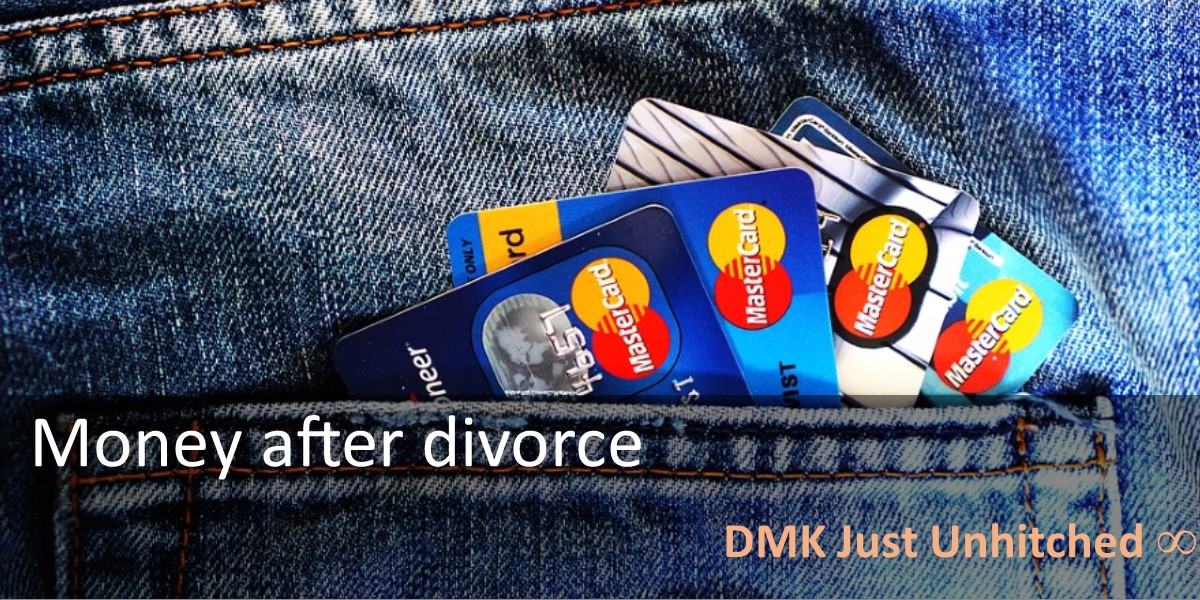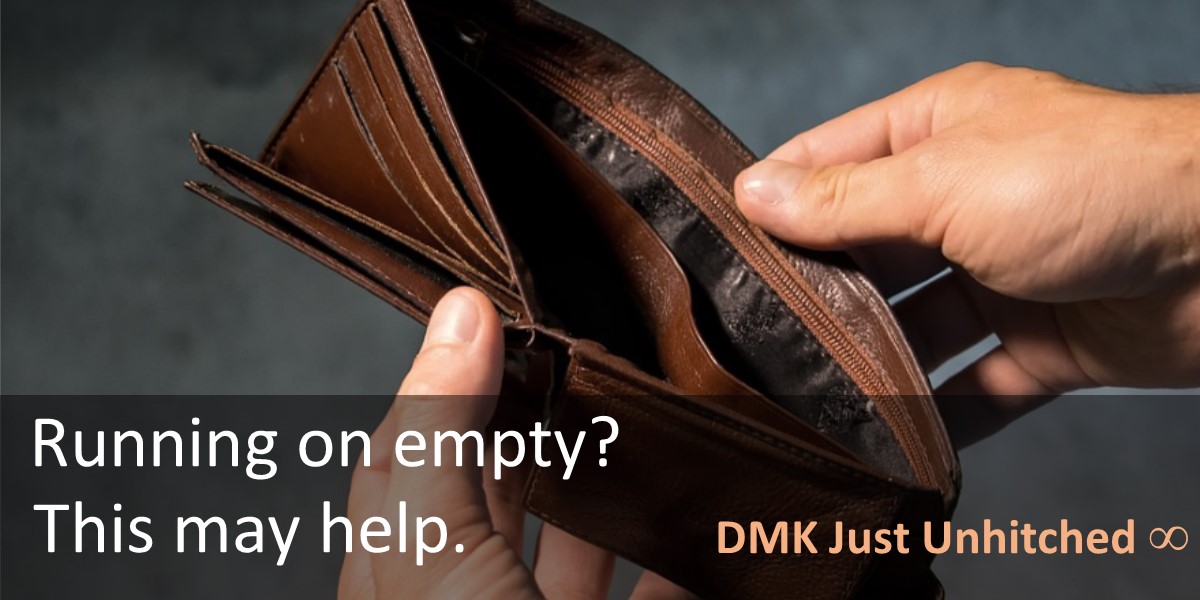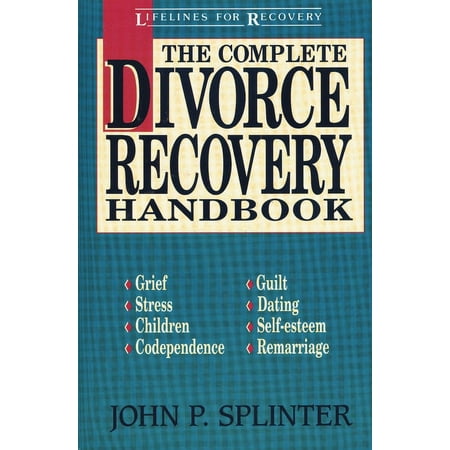I feel like my money situation is hopeless.
Divorce is a great way to go broke. Not only is it expensive to divorce, but you likely split most of your assets and income in half. Also, emotional preoccupation with a failed marriage, separation and finality of the divorce can really put a dent in your ability to maintain your finances. You are realizing you need to work harder to achieve less overall gain. You may not like it, but it's the fact of divorce and it won't change by ignoring it or complaining. You need to find more income and spend less. This means thinking outside your normal lifestyle and developing a strategy that helps you get back to a financially stable situation. It's not easy, but try not to think of it as hopeless since that implies no end. There is an end and it starts with identifying your problem areas and dealing with them.
My friends don't understand my money situation after my divorce.
It's not easy to modify your lifestyle following a divorce. While it should seem obvious to your friends that you may not have the same financial resources that afforded you the opportunity to go out and spend like before, some people just don't clue in to what is happening (especially if they have never experienced what you are going thru). You may need to be direct and tell them you have experienced some changes since the divorce that may affect the amount of time and money you have available. If expensive lattes by day and girls night out on the plaza by night are getting to be too much, suggest to meet at each other's houses instead. If they still do not understand, then perhaps it's time to find more mature friends who understand that "life happens".
My ex doesn't want to pay what was agreed upon in the settlement agreement.
Upon the judge signing your Final Judgement of Divorce, that includes the terms of the settlement agreement, it became enforced by a court order. If your spouse can not provide a good reason for not paying (like involuntary job loss or injury) you can request help from the court to force your spouse to make the payments since he is in contempt of court. It is best to hire an alimony attorney, but if you can't, you can go to your local courthouse and ask for the appropriate forms and procedures to file a petition, motion or complaint for what most states refer to as enforcement or violation. Your former spouse may be subject to both civil and criminal penalties. He/she may be responsible for fines, attorney's fee's and be subject to garnishments. However, the purpose of the complaint is primarily meant to enforce the original agreement rather than impose a punishment.
My ex wife wants more alimony then was ordered in the settlement agreement.
In some states there may be an allowable modification if your spouse was not awarded the amount of support to maintain her standard of living to which she was accustomed while married and that which you formerly were able to provide since your income at the time of the hearing was insufficient, but now is of an amount to satisfy the appropriate alimony/support. If both spouses do not agree to modify the original decree, then one spouse would file for a motion for modification in the court where the original decree was established. Usually modifications to debt or asset division will not be considered unless there was a pre-divorce situation that would have affected the settlement.
I'm already working a second job plus overtime but still have money problems.
Try our list of tips on the side bar of this page. If your seriously short on money you are living above your means and will want to consider the tips below:
Save on your automobile
It may be time to get a different vehicle. Do not trade your vehicle in, if possible. You will get more money if you sell it outright and use the cash for the next vehicle. If you owe on the current vehicle, get pre-approved for a new, less expensive car loan before selling your current vehicle or save the money to get another, less expensive vehicle, then sell the current one. It's never easy to change your standard of living, but sometimes some realistic modifications can make a huge difference to your budget and little difference to your lifestyle. The hardest part is to realize some sacrifices need to be made and then actually make them.
You can save a great deal when you buy a vehicle for cash instead of making payments. You can elect to get liability insurance and/or a higher deductible instead of full coverage which can save hundreds annually (ask your insurance representative about the associated risks with less insurance coverage). If your credit is poor or average you may save a good amount on the car interest, as well. You will want to make sure you get a safe and reliable vehicle, so don't just buy on price. The lower the value of the vehicle the less you pay on your personal property tax, as well.
On the flip side, it may be wise to finance a new vehicle instead of paying cash. If you are buying a newer or more expensive vehicle, you may yield a higher return on your cash if it is properly invested. So if you get a 12% annual return and the cost of the auto loan is 5% and the other associated taxes and insurance do not exceed the difference on the auto or the investment then you are better off financing the vehicle. Also, if you are struggling with monthly expenses due to a high rate auto loan or frequent repair bills, you may do better with a newer, more dependable vehicle. Your overall monthly payment will be reduced due to lower interest and longer auto loan term usually allowable for late model or new vehicles.
Save on your insurance
As noted above, there is a great deal of savings found in changing some things around in your insurance policies. If you do not have an auto loan on your vehicle, you can reduce your auto coverage to state minimum coverage which is usually liability only. This is risky and means if you are at fault or an uninsured or underinsured driver hits you, you will have no coverage. Nor will your vehicle be covered for comprehensive claims. However, you can save a great deal on this change in coverage and can go back to full coverage insurance at any time. It is very important that you understand the risks and benefits before making changes to your policy.
If you are healthy, you may want to consider changing health insurance plans that will provide savings on your monthly premiums. You will usually only be able to make these changes during divorce, marriage or other life changing event or during open enrollment. Be sure to watch for changes in deductibles, hospital and urgent care visits, prescriptions, co-insurance and doctor visit charges for both primary and specialists.
Save on your home
Your home may be the greatest family investment you will ever make. It is a great tax deduction and a place to live without the restrictions of a landlord. Usually, you can buy a home for little to no money down and with the right improvements and maintenance you will have a very safe investment with a great return. Once you have paid down the homes mortgage to 80% you can request the bank remove your Private Mortgage Insurance (PMI). It can save hundreds every year. If your home was financed when the rates were higher, or if you have high interest debts in addition to your home loan, it may be a good idea to refinance and consolidate your debts into your home loan. You can't lose your home when you default on credit cards, but you can if the credit cards are consolidated into your mortgage as part of your refinance - so be sure to ask your mortgage lender to go over the risks associated with these types of loans.
Disclaimer
The information provided by respective owner's ("we", "us" or "our) on Divorce Me Knot (referenced also as "DivorceMeKnot.com", "dmk", "DMK", "OurDMK.com", "OurDMK", "application" or "site") is for general informational purposes only and is subject to change with or without notice. All information on our site and application is provided in good faith, however we make no representation, guarantee or warranty of any kind, express or implied, regarding the accuracy, validity, adequacy, reliability, availability or completeness of any information on the site or application.
The information in articles and all content on this site should not be considered psychological or behavioral health therapy, counseling or legal, financial, real estate, mortgage, insurance or professional advice. It should not be used in place of professional advice from a licensed professional or credentialed expert. Providers of content on this site, herein known as "Contributors" (inclusive of, but not limited to writers, bloggers, editors, employees, developers, graphic designers, advertisers, partners, affiliates, references, experts, professionals and site owners) are not legally liable for any misinformation, errors or omissions. Names, details and images may have been changed in the content of this site.
Under no circumstances should DMK and/or it's Contributors have any liability to users of the site for any loss or damage incurred to users as a result of the use of this site or application or reliance of any information provided on the site or application. Use of the site or application and reliance on any information from the sight or application is solely at the user's own risk.
For complete site disclaimers review "Disclaimers" on this site or click the link below.
Read Complete Site Disclaimers Here










































 How to resolve AdBlock issue?
How to resolve AdBlock issue?